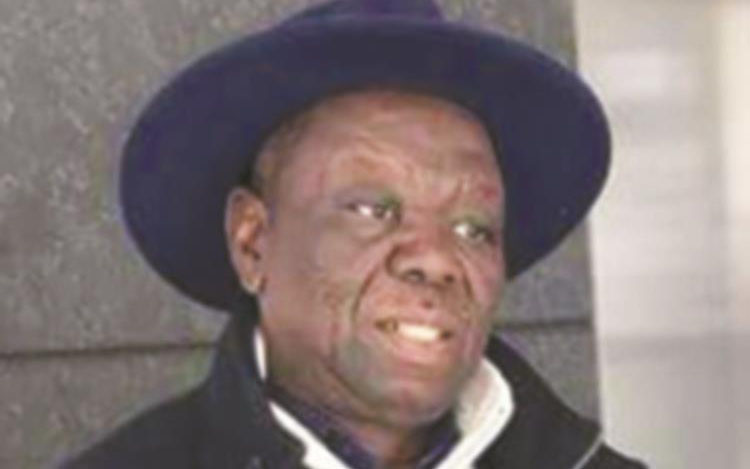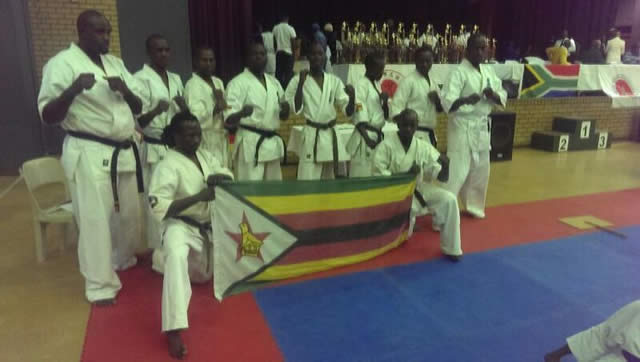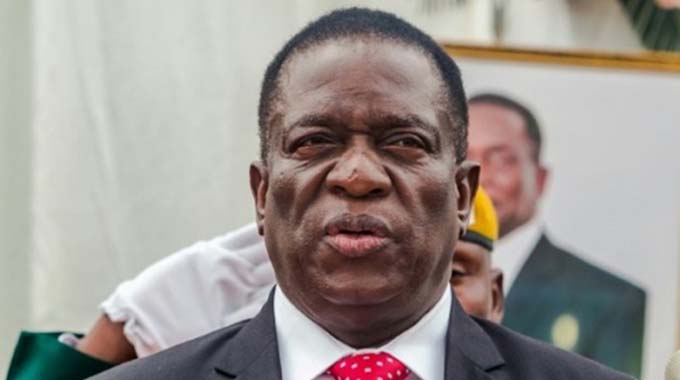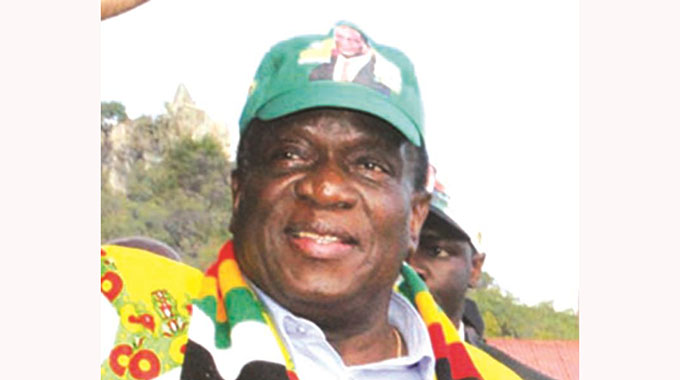Opposition not an alternative

Nick Mangwana View From the Diaspora
THE word “alternative” implies that there is another possibility. It means a person is given an option to make a different choice to the one offered.
In the Zimbabwean political context, Zimbabweans are deprived of that option.
The opposition is not really an alternative, is it?
The people of Zimbabwe are shortchanged in a political big way.
This columnist’s political allegiance is a matter of record.
But his first love is Zimbabwe.
The love for the country trumps the love for the party.
That one is a position that is unapologetically held.
The party can only come second to the country.
It is, therefore, quite important that for Zimbabwe’s democracy to thrive there is a need for a vibrant opposition which provides an alternative.
But for our country it’s a tragedy because we have an moribund opposition which has a tendency of only being active during election time. Or if they are active at all, it is only about elections or their so-called reform.
It is not about what they want to do with power in the unlikely event of them gaining it.
And people are supposed to vote for them just because they bring a change for the sake of it?
A change from a designer suit to sackcloth is still a change. Is that what the people want?
The answer is a resounding no.
We recently saw the opposition parties coalescing and signing the Memoranda of Understanding (MoUs).
These again were all about power.
In the “understanding” there is nothing about the people.
There is nothing about the ideological thrust or slant.
There is nothing about socio-economic programmes.
It is all about personalities and power.
So why would anyone vote for them? What will they be voting for when it is all about who is going to lead the contest against Zanu-PF?
When so many fringe parties come together and it’s all about personalities then the opposition is showing how vacuous it is.
And when they lose they think it is about rigging. It is not. It is about organisational weaknesses and glaring fault lines. Where is the connection between these elitist MoUs and the electing populace or the voting constituencies?
Where is the mass base?
How do you compete against Zanu-PF whose internal contradictions are even fought via the grassroots?
Literally everything in Zanu-PF is taken back to where it all begins – the people.
How do you fight such an opponent when all you do is sit in hotels, talk, drink tea and pose for photos as you sign documents not worthy the papers they are written on?
Now that they have signed, let us see those promoting agreed policies. But they can’t do that can they?
There is no agreed policy to promote. They just agreed on who should lead the quest to wrench power from Zanu-PF.
When political parties come together, not on the basis of policy, not on the basis of ideology but on the basis of bitterness of a common pursuit to wrest power from a formidable incumbent, then one should know that they are dealing with a mere channel for parochialism.
We need to hear an alternative policy which shows that the opposition has a completely distinct and alternative paradigm. If they are opposed to the principle of empowering indigenous Zimbabweans? Fine and what is their alternative? Is it neoliberalism? Is it unadulterated capitalism? What is their policy?
For argument’s sake, let us agree with them not to put the Zimbabwean economy in the hands of the majority, what is their alternative? Is this the concept they are coalescing around? The Zimbabwean voters need to be able to make a choice between distinct alternatives. One which seeks to ensure the proceeds of natural resources benefit the majority and the other which seeks to have the proceeds of Zimbabwe’s mineral wealth disappear.
This column has always argued that for Zimbabwe to progress, Zanu-PF needs to be pushed to deliver.
It is an unfortunate scenario but one which a pragmatic democrat has to be at peace with.
We have all seen what the members do when there is no external threat; they create their own opposition within and expend vital time, energy and resources on silly political games.
When an election come they then gets some kind of concordance, fight that election, win it and turn on each other again.
When this is happening the economy pays the ultimate price. So Zanu-PF delivers better when adequately opposed. Not by the popcorn opposition which believes fighting constitutional commissions and State institutions is a legitimate political objective. But an opposition that knows that constitutional commissions are brought to account via the oversight of Parliament.
Political parties are meant to cohere on common interests who are developed into an aforementioned alternative policy. But the one “policy” we hear is, “Mugabe must go…”
That surely is simply not good enough. One of the unwritten conventions in democracy is for the opposition to recognise and respect the authority of the elected government. Of course, they have to temper any excesses of the incumbent without deliberately undermining the success of Government programmes.
Two important factors that should be in a democracy are the existence of different parties, there should also be participation and contestation. But what has happened in Zimbabwe is that after the 2013 Zanu-PF landslide, the main opposition contested a few by-elections and were humiliated at the polls.
They then decided that they had experienced enough humiliation and did not want to continue to demoralise themselves and their supporters. What followed was not only a hiatus in electoral contestations, but also a focus on attacking the electoral system as the only agenda. Now, that’s politics of negativity and policy bankruptcy.
Let the minority seek to convince the majority of their point of view by articulating cogent arguments. Not by insults and intolerance. But that is what we are getting from the opposition and their supporters on both social media and mainstream media.
It appears there is a competition on who can come up with the cleverest meme or insult. One wishes that the competition was on who can come up with the most creative alternative ideas to those of the ruling party.
Will the people of Zimbabwe ever see a government in waiting in their opposition parties? If the opposition parties had run local authorities with probity and efficient service delivery, one would have thought they have taken successful practice shots for central Government. But the voters are not stupid.
They know very well that the disaster and scandals they have seen at local level will be translated to national level. Those who cannot be trusted with small things should not be trusted with big things. Thus the Zimbabwean opposition is no alternative to Zanu-PF.
How can parties with no internal democracies be overseers of democracy in Zimbabwe? One major opposition party ended up with three vice presidents within a year of holding a congress. It means it was not a call from the people but some elitist gerrymandering. If we were to look at how the opposition selects its election candidates and compare that with Zanu-PF we will be left in no doubt which side has more internal democracy than the other.
In Zanu-PF there is a vibrant primary election system for choosing leadership and candidates. At any time there is always some competition for positions happening at different levels. This keeps democracy really vibrant. But this type of thing is utopian to opposition parties. So is democracy.
Any well-meaning democrat would like the opposition to compete for power. And those in Zanu-PF would like them to lose, of course. One hopes that they do it on the platform of Afro-optimism and not the back of the suffering of the people. A vibrant opposition makes an incumbent government more responsive to public opinion. This is something that’s not really happening at the moment.
Zanu-PF has a legitimate incumbency and is poised to notch up another next year. But this is not entirely matched by satisfaction and unquestionable contentment among its loyal supporters and the population at large. It cannot afford to ignore that disquiet just because its supporters will always back up its quest for power retention.
On the other hand, the opposition need to offer something much more substantial than bitterness to even hope to threaten Zanu-PF’s stranglehold on power. And this has to be something beyond MoUs which cannot do the justice to the trees that were milled to produce the paper on which they are written.
The quality of Zimbabwe’s opposition is not doing our democracy any justice. We have an opposition simply proffering verbal abuses against the person and age of the President and Zanu-PF members as their alternative narrative. The people of Zimbabwe might find this entertaining but will not vote for a comedy show and caricature. They will vote for leadership. When all has been said and done the only sensible solution they will have is to vote Zanu-PF.











Comments